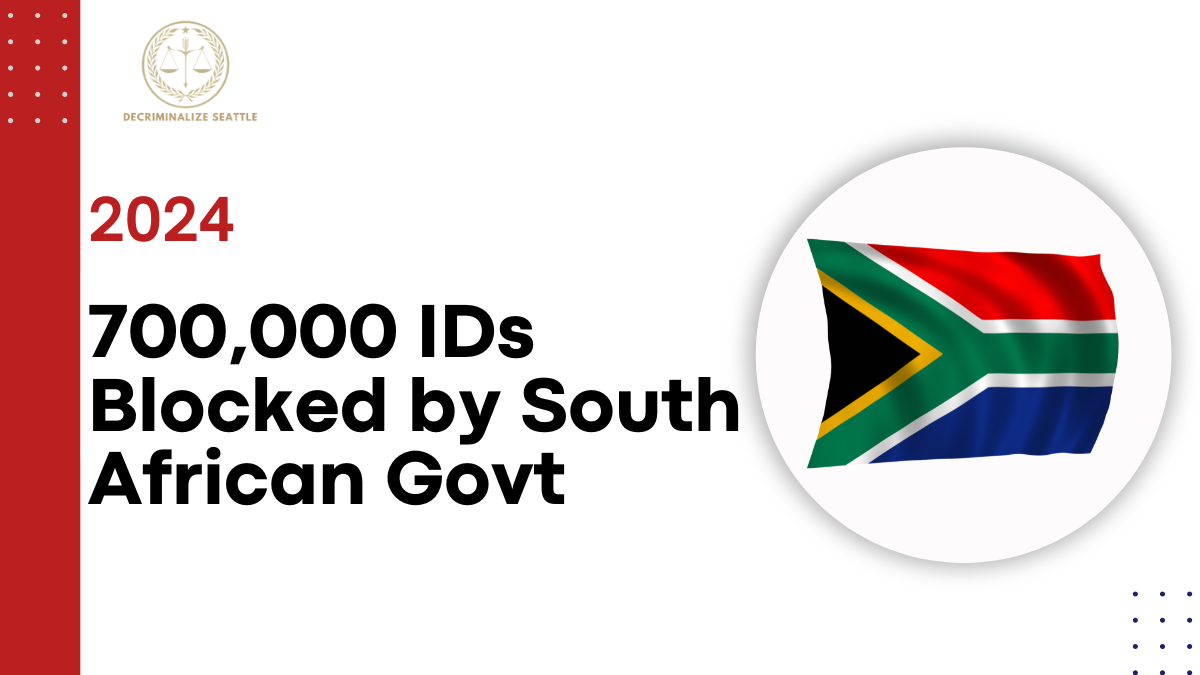The South African Department of Home Affairs (DHA) is facing significant backlash for failing to comply with a court order to unblock identity documents (IDs) affecting nearly 700,000 citizens. This controversy highlights the need for fair administrative procedures and the severe impact bureaucratic decisions can have on individuals’ lives.
700,000 IDs Blocked by South African Govt
The High Court in Pretoria has just declared that the DHA’s habit of invalidating IDs without following proper procedures is against the law, as it does not adhere to the Promotion of Administrative Justice Act (PAJA). According to PAJA, the DHA must inform individuals when decisions that impact their rights are made. Although the court granted the DHA 90 days to comply, the deadline has passed without any action or explanation from the department.
Thandeka Chauke, head of the Statelessness Unit at Lawyers for Human Rights, expressed frustration with the DHA’s silence and non-compliance. She noted that the lack of communication has left thousands of people uncertain and distressed, with no clarity on when the situation will be resolved.
Impact on Affected Individuals
Having a blocked ID can severely disrupt daily life, as it prevents individuals from accessing crucial services like banking, renewing driver’s licenses, and obtaining passports. Many people only discover that their IDs have been blocked when trying to use them for these purposes, causing unexpected complications.
Lawyers for Human Rights reported that many affected individuals were not informed about why their IDs were blocked, leaving them to investigate the issue on their own. This lack of transparency has forced many into prolonged bureaucratic struggles, with some cases dating back to the early 2000s. The consequences have been devastating, leading to job losses and preventing individuals from supporting their families. Parents with blocked IDs also struggle to register their children, creating long-term documentation challenges.
Judicial Insights and Broader Implications
Judge Elmarie van der Schyff recognized that the DHA faces difficulties in managing fraudulent IDs and irregular migration, as South Africa is a key destination for migrants. To tackle these challenges, the DHA introduced ID blocking to prevent identity fraud. However, the judge criticized the department for blocking IDs before completing investigations, unfairly penalising legitimate citizens and permanent residents.
Lawyers for Human Rights welcomed the court’s decision, viewing it as a step towards ending the unfair practice of ID blocking. Chauke emphasized that the judgment is crucial in restoring dignity to affected individuals and called for systemic reforms within the DHA to prevent such injustices.
Next Steps and Seeking Resolution
The court’s ruling includes a supervisory order, meaning it will monitor the DHA’s efforts to comply. Lawyers for Human Rights will continue advocating for affected individuals and press for reforms to ensure the DHA follows transparency and administrative fairness principles.
In addition, the organization has launched the #UnblockMyID campaign to raise awareness of the issue and gather testimonies from those impacted. Chauke encourages individuals with blocked IDs to continue speaking out and holding the DHA accountable.
Importance of Administrative Justice and Transparency
The DHA’s failure to follow the court’s order has caused significant hardship for many South Africans, as blocked IDs prevent them from accessing essential services. The court’s ruling underscores the importance of administrative justice and transparency in government processes. It is now crucial for the DHA to address these issues promptly, ensuring that all South Africans can obtain the identification documents they need to live with dignity and security.
This case highlights the broader need for government reform, focusing on fairness, accountability, and clear communication in handling sensitive administrative matters.
Click here to know more.

Arvind is an avid automobile enthusiast who is passionate about all things on wheels. From the latest car models to classic vintage rides, I love exploring the automotive world’s intricate details and engineering marvels. With years of experience in test-driving, reviewing, and analyzing cars, I provide readers with comprehensive insights and honest opinions.
